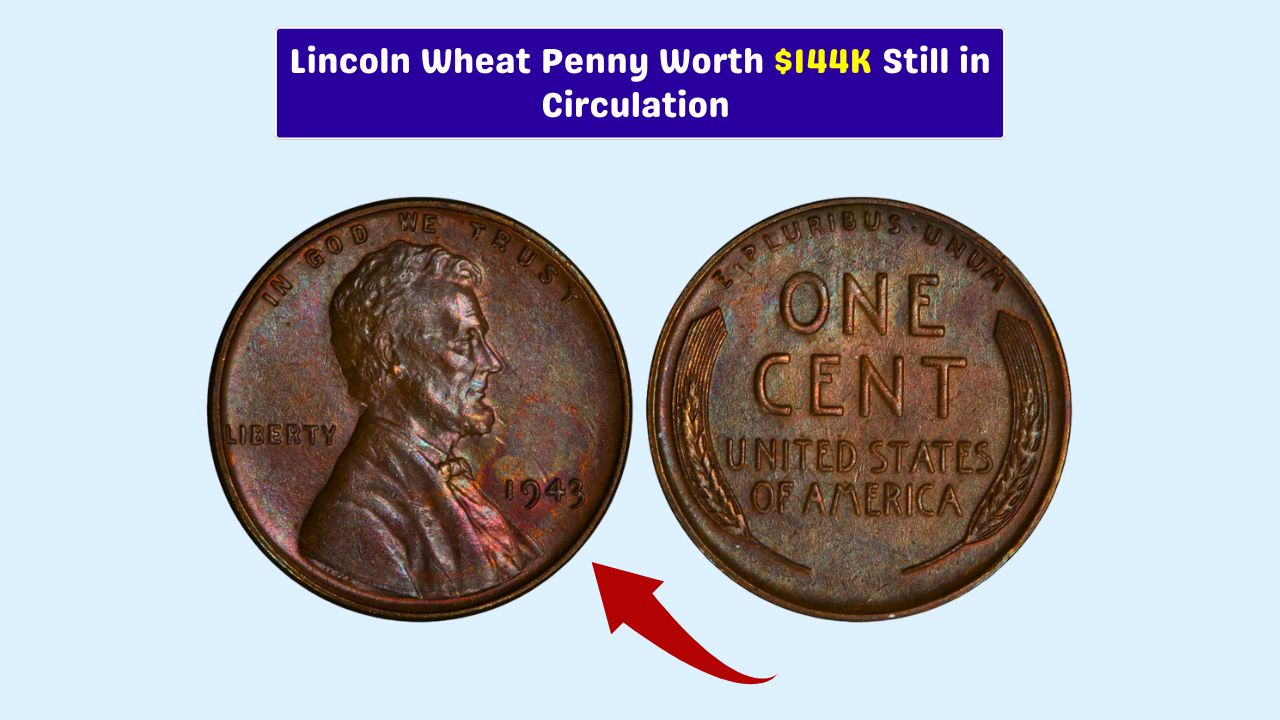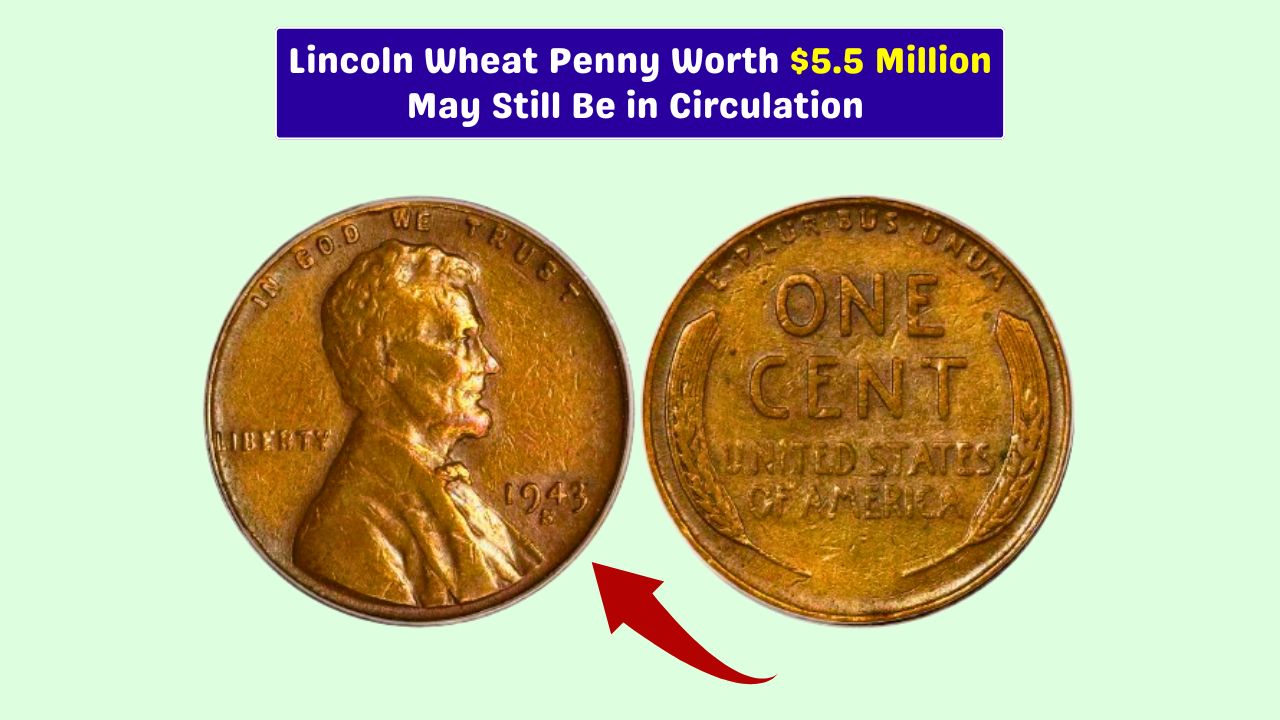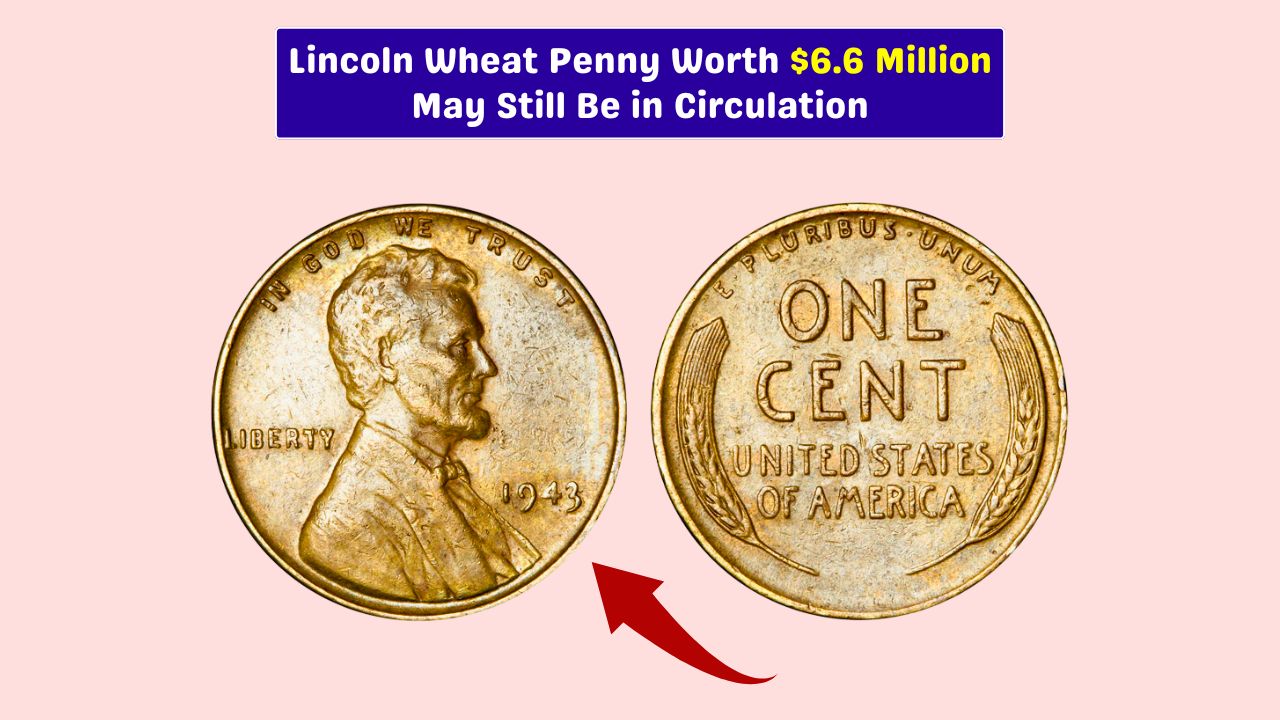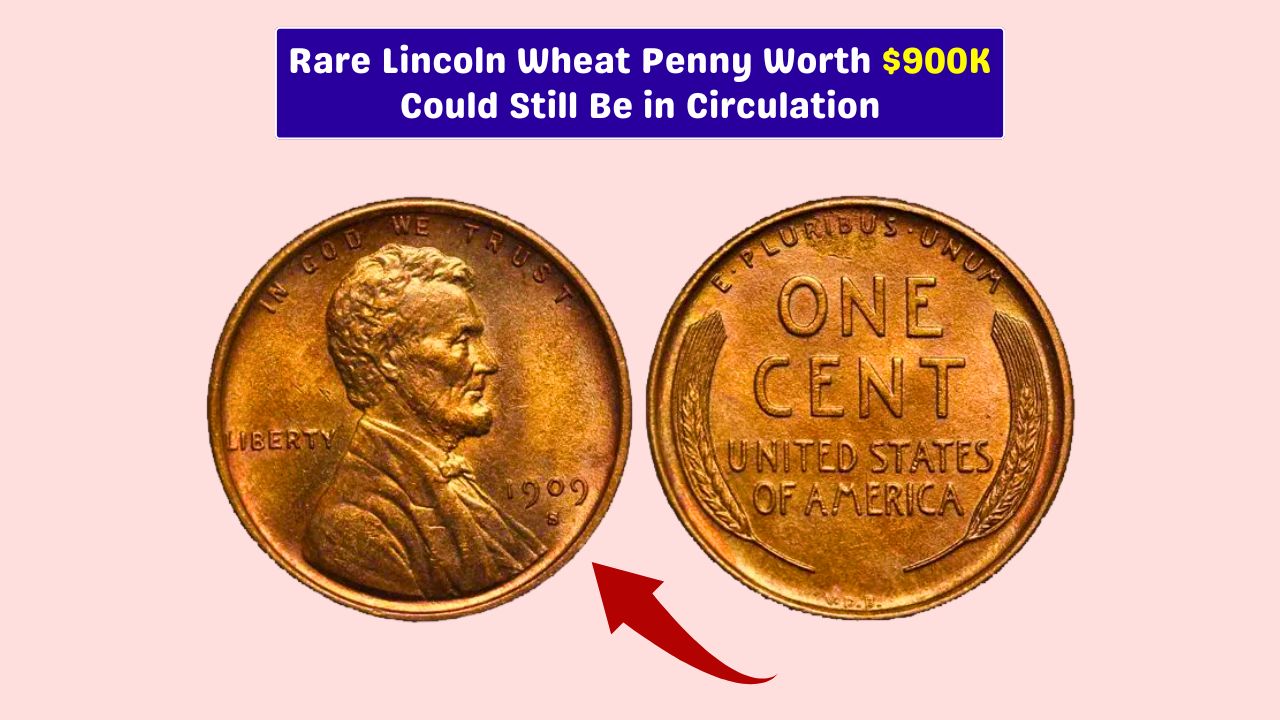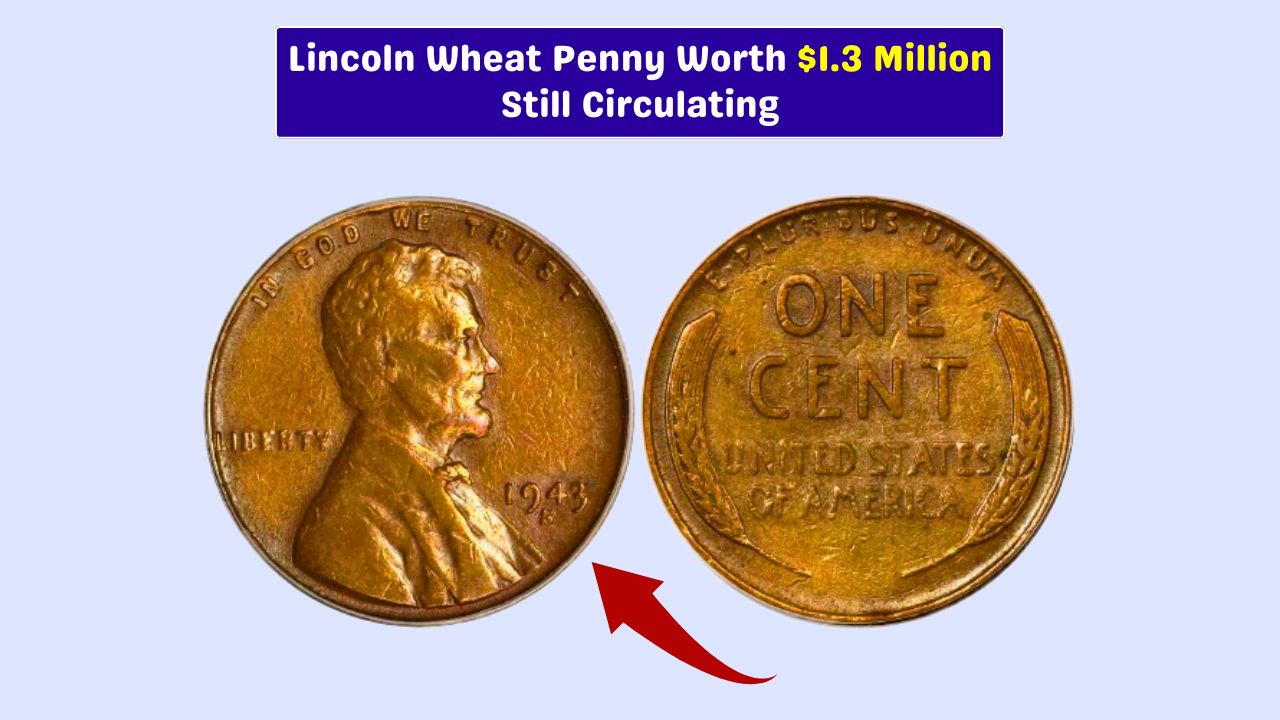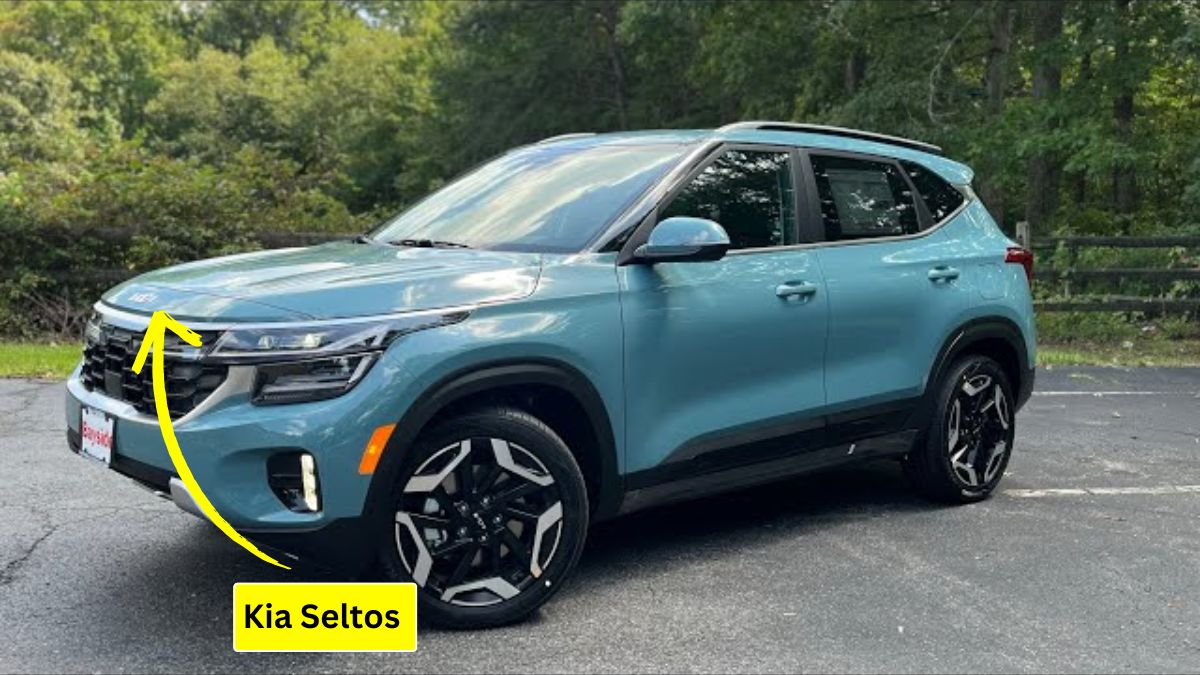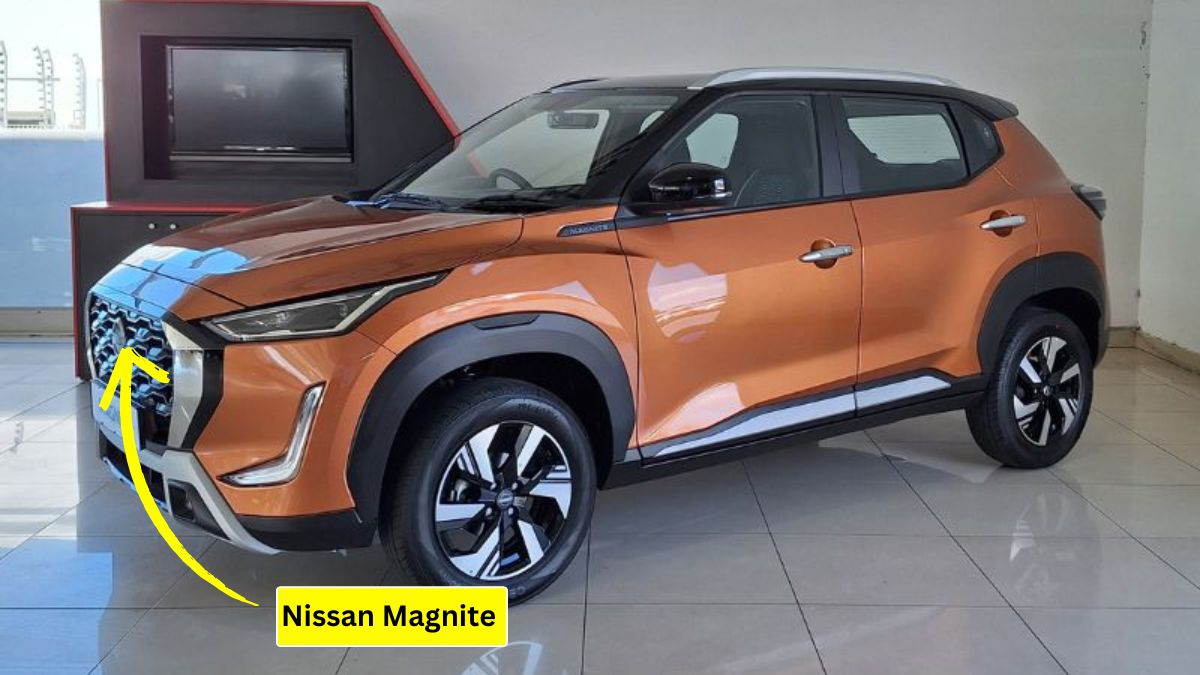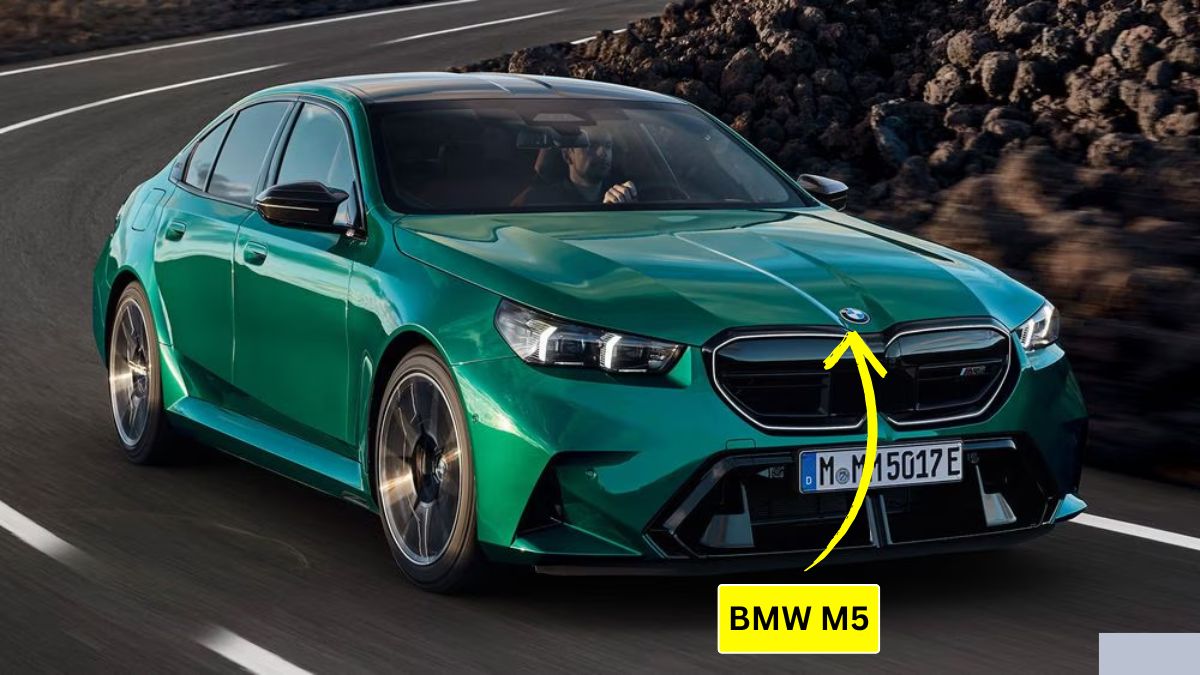You might want to start checking your spare change a little more carefully. Believe it or not, one tiny coin, a rare Lincoln Wheat Penny, has recently been valued at a jaw-dropping $122,000.
That’s right—what looks like a regular old penny could actually be your ticket to a small fortune. Let’s break down what makes this coin so special and how you can tell if you’ve got one hiding in plain sight.
History
The Lincoln Wheat Penny first rolled out in 1909. It was a big deal—it marked the 100th anniversary of Abraham Lincoln’s birth and was the first U.S. coin to feature a real person’s face.
The front shows Lincoln, while the back displays two wheat stalks. These coins were produced until 1958, and though they’re no longer minted, many are still floating around in circulation or tucked away in old drawers.
Rarity
Now, not every Lincoln Wheat Penny is worth a small fortune. The one that sold for $122,000? It’s a 1943 copper version, and here’s why that matters. In 1943, most pennies were made from steel due to wartime copper shortages.
But a few were accidentally struck in copper—a classic minting error that turned these coins into prized collectibles.
Only a handful of these 1943 copper pennies exist today, which is what makes them so insanely valuable to collectors. When rare materials meet historical quirks, the price tag can skyrocket.
Errors
Besides the 1943 copper coin, other mint errors can also drive up value. Some error examples include:
- Double die (design appears doubled)
- Off-center stamping
- Wrong metal planchet
- Missing letters or numbers
Collectors go crazy for these flaws, especially if the coin is in great condition. These small mistakes can mean big money.
Checklist
So how do you know if your penny is worth a second look? Here’s a quick checklist to help:
| Feature | What to Look For |
|---|---|
| Date | Between 1909 and 1958 |
| Year 1943 | Check if it’s copper, not steel |
| Surface | Unusual color or doubling effect |
| Weight | Copper penny = ~3.11 grams |
| Errors | Misprints, missing text, etc. |
Pro tip: If you have a 1943 penny, try using a magnet. Steel sticks, copper doesn’t!
Places
You don’t need to go treasure hunting with a metal detector—these pennies might be closer than you think. Start by checking:
- Piggy banks and coin jars
- Old wallets or purses
- Family heirlooms or collections
- Change from shops or vending machines
- Garage sales and thrift stores
People often overlook these coins because they look so ordinary. One quick glance, and boom—you might just spot a fortune.
Action
Found a suspicious penny? Don’t rush to spend it. Here’s what you should do:
- Compare it with verified rare coin images online
- Weigh it—copper and steel pennies don’t weigh the same
- Take it to a certified coin dealer or appraiser
- Consider auctioning it off or selling it online to a trusted buyer
It’s always smart to verify first before making any decisions. You could be sitting on something truly valuable.
Who knew a plain old penny could be worth more than a luxury watch? While the odds are slim, it costs you nothing to check.
So next time you get change, slow down, flip through those coins, and keep your eyes peeled for a Lincoln Wheat Penny—it might just change your life.
FAQs
How do I know if my 1943 penny is copper?
Use a magnet—if it sticks, it’s steel. Copper won’t stick.
What years are valuable Lincoln Wheat Pennies?
Mainly 1909 to 1958, especially 1943 and 1909-S VDB.
Where can I get my penny appraised?
Visit a local coin shop or certified coin grading service.
Are error coins worth more?
Yes! Especially rare errors like double dies or wrong metals.
Can I sell rare pennies online?
Absolutely—use sites like eBay or professional coin auctions.






